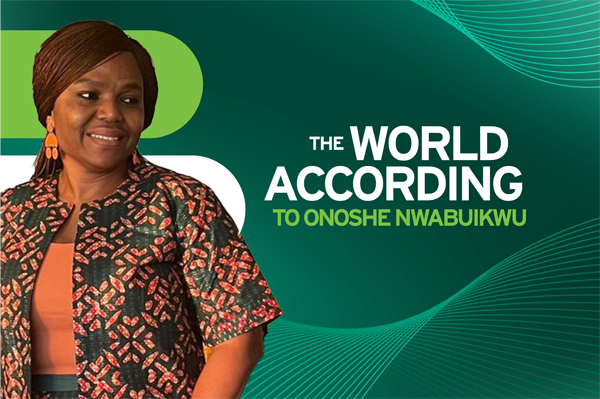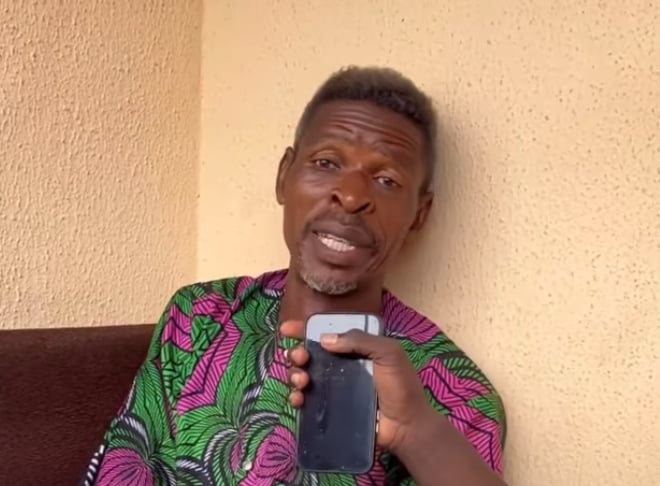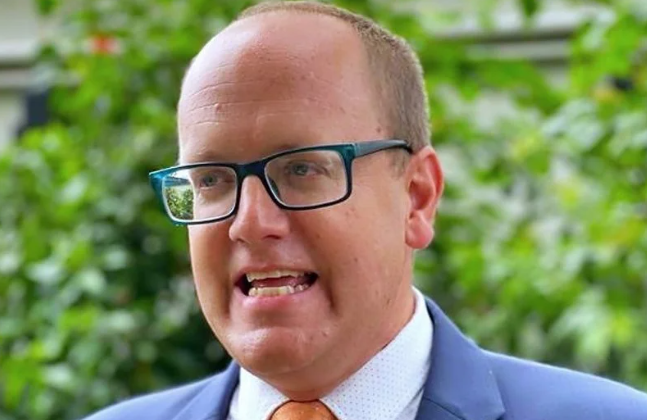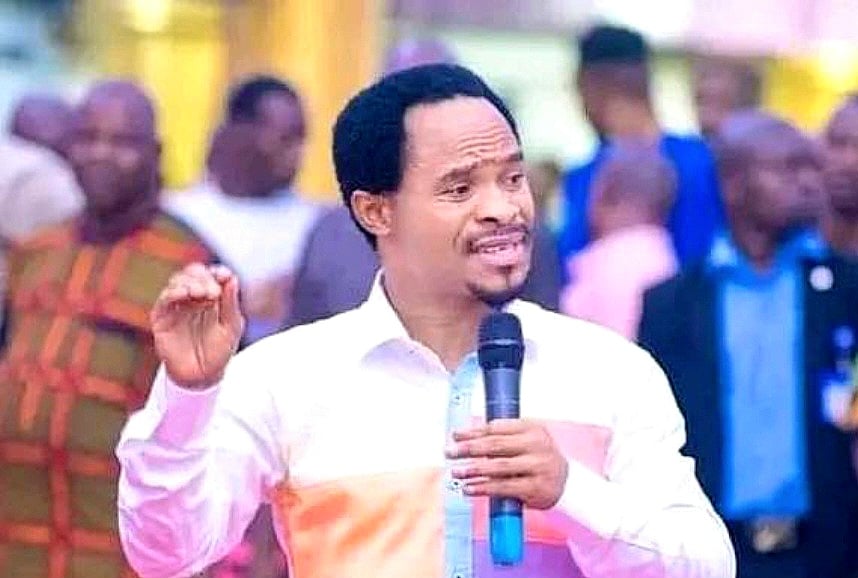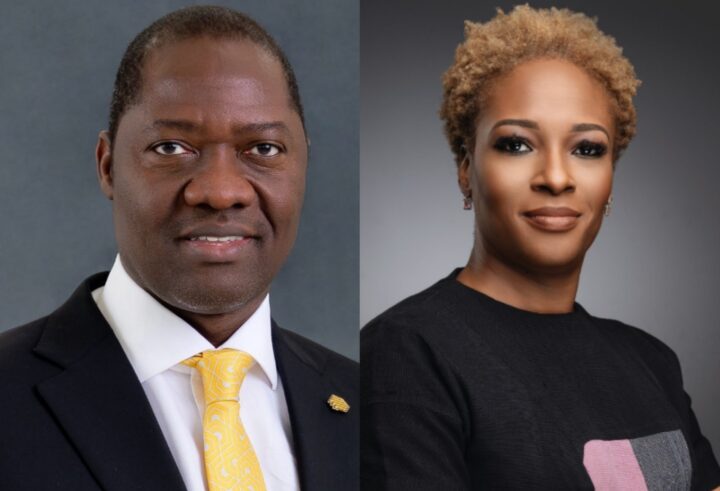Picture this scenario: A man (or woman) returns home after a tough day at work. If the said person works in Victoria Island, Lagos but lives in Ojodu Berger, especially the half that’s in Ogun State, he will also have likely endured bone-sapping traffic and inhaled all sorts of harmful fumes from vehicles and humans. This person, to make his/her home more conducive, switches on the air conditioner, then takes a walk to his friend’s house, down the road, hoping to return to a much cooler house. By the way, I doubt that there are many Lagosians, or anyone who has gone through a day like the one described above, who would be visiting any friend, down the road or not. But this is the story (or words to this effect) told by Nigeria’s Power minister, Adebayo Adelabu at a press conference last month April 4 in Abuja. That picture he painted was to buttress his point about electricity being too cheap in Nigeria.
However, the high (or low) point of that conference was his freezer rant: “Some people will be going to work in the morning, a freezer that you left on for days, they will still leave it on when all the items in the freezer are frozen and 5, 6, 8 hours of their absence will not make it to defreeze, they will still leave it to be consuming power just because we are not paying enough…We have all been overseas before; we know how conscious the power consumers are about electricity consumption.”
How can anyone tell a people living in the world’s poverty capital that something as basic as electricity is too cheap? Nigeria’s inflation as of April 15, 2024, was put at 33.2%, highest in almost 30 years. The prices of basic food stuff prices have become extremely high. A crate of eggs is almost four thousand naira. Garri has become literal gold. What about rice? Well, at this rate, it’s safe to say that Nigerian jollof rice is far more expensive than Ghanaian jollof rice. Death on the other hand has become unbelievably cheap. On any given week, there’s something for Nigerians to groan about. On May 6, 2024, Nigeria’s Central Bank asked banks to charge 0.5% on e-transfers as “cybersecurity levy.” This proposed levy joins many other levies banks currently charge. Some of these levies don’t make sense. Imagine paying a maintenance fee for your bank card! All that aside, why do our public office holders like to engage in selective comparison? Seeing as they love abroad/overseas, what’s the quality of life in these “overseas” which according to Adelabu we’ve all been to? Why not compare the infrastructure, security, accountability from public servants, etc. from these places?
I’m sure you might be wondering why I’m going on about this piece of old news. The man has offered an apology, although it sounds like a non-apology considering one of the reports has him as saying he was quoted out of context. Meanwhile, everyone saw a video of him speaking to journalists, with no editing or anything like that. I decided to start the first edition of this new column with this story because we must never allow ourselves to forget. Also because I’ve been planning to write this for as long ago as that press conference took place. Then again, it doesn’t stop. Adelabu is not the first government official to insult our intelligence. Even if one wanted to forget or ignore, from the North to the South, there’s no shortage of some government big man (or woman) talking down on Nigerians. Earlier in March, Senator Oluremi Tinubu, President Tinubu’s wife mocked Nigerians seeking better living conditions abroad: “Look at all those people saying they are going to Japa, they go there. What work are you going to do? You know, work that you refused to do at home where you have loved ones, you now end up to go and do there. With all their education, they’re driving cabs, but they won’t drive cabs here,” I can’t even begin to unpack the tone deafness of this statement. But just to point out that driving taxis in Abuja, Nigeria is not the same thing as driving taxis in Toronto, Canada. Meanwhile, these are the same people who have set up a stress-less life for their kids abroad. Of course, what’s good for them is not good for the masses. Public officials ought to be telling Nigerians how hard they’re working to improve their lives at each opportunity they get. Instead of having a long running face-me-I-face-you/I-better-pass-my-neighbour quarrel with those they’re meant to serve.
Advertisement
And just as I was pondering whether to write this, David Umahi, Nigeria’s works minister was more interested in attacking former governor Peter Obi who had criticized the government’s demolition of the over $200 million Landmark beach resort for a coastal highway project. Never mind that the said coastal highway was initially meant to take a slightly different route that could’ve been less destructive, or the mystery surrounding the award (or re-award) of the contract. Never mind that there are arguably more pressing roads that need urgent attention than this coastal highway. Or the fact that many investors are understandably afraid of investing in real estate in Lagos State, for fear of losing their money sometime in the future. Umahi could’ve chosen to reassure Nigerians and all potential investors that the federal government means well, that their investments are safe. Instead, he chose to go low and engage in plain njakiri. Umahi was last seen telling a journalist Laila Johnson Salami (Arise TV) that he couldn’t understand her ‘fo-ne’ and that he needed an interpreter because he’s a villager. And this was at a serious meeting with stakeholders to discuss compensation for the earlier mentioned Lagos-Calabar coastal highway project.
This behaviour is not new. In the not-so-distant past, Dr. Chirs Ngige, former labour minister under the Buhari-APC led government, released some ‘golden’ classics. In April 2019, during a Channels TV interview, Ngige while playing down the mass exodus of medical doctors from Nigeria said he wasn’t afraid of the mass exodus because: “We have surplus” and “if you have surplus, you export. We have more than enough (doctors). Quote me.” The World Health Organisation, W.H.O, begs to disagree. The W.H.O recommends one doctor to 1000 people. The Nigeria Medical Association which debunked Ngige’s claims about Nigeria bogus surplus doctors, said there are 40,000 doctors to cater to our population estimated at 200 million. Some have calculated that Nigeria has one doctor to 6000 people. It must be more than 6000 people to 1 doctor now.
Two years later, April 2021, Ngige was at it again. Doctors were on strike and at a time many expected the government to calm people down, the labour minister who’s himself a medical doctor, had this to say:“The people who are talking about those who are going for greener pastures, how many medical doctors in residency training in America ask the government to pay them resident training fund? How many? In the United States, you pay to enter into the residency programme. In the UK, the same, you’re paying. Here, we pay them salaries and allowances and also give them money for examination for books, for transport to exams…” The point Ngige sought to make was how the Nigerian government was doing far more for resident doctors than even first world countries. Hmm.
Advertisement
On March 27, 2019, then minister of agriculture, Audu Ogbeh, appeared before the Senate to defend his ministry’s budget for 2019. He took time to lambast Nigerians for being a nation of importers. He said: “Do you know, sir, that there are Nigerians who use their cell phones to import pizza from London? They buy in London and bring it on British Airways in the morning to pick up at the airport.” As I noted at the time, Ogbeh had at least 3 problems: The fact that Nigerians have cell phones, eat pizza, and can afford to fly British Airways. But what did this have to do with his job as the agriculture minister? Perhaps, that’s why fewer and fewer people can afford to fly now, even within Nigeria. One would’ve expected a ‘whole’ minister to put the right amount of weight on certain factors: How many out of Nigeria’s famed 200 million plus population are we talking about? Is that enough to dub Nigeria a nation of importers?
The president’s wife mocks Nigerians seeking a better life abroad, conveniently ignoring the current hardship they’re facing at home. From her rose-tinted designer glasses, she can’t see that millions of Nigerians aren’t as privileged as her family members. Ministers paid by taxpayers tell those same taxpayers things are too easy for them unlike overseas. And so on. But why do public officials serving the people take turns to insult them? I think the short answer is that these people know nothing will happen to them. This is one of the reasons we must keep talking about these things.
Add a comment
